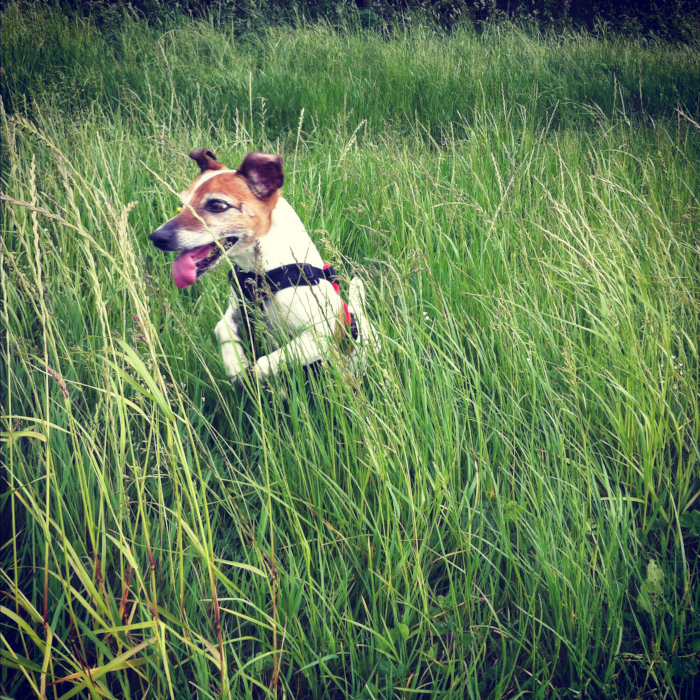
February is the month of Valentine hearts and flowers, but did you know that it’s also American Heart Month? To celebrate, Felton Veterinary Hospital is shining a spotlight on pet heart health by focusing on the signs of heart disease in pets, and what pet owners can do to prevent it.
Nearly ten percent of pets suffer from heart disease. Like humans, animals experience different forms of heart disease – some that are genetic or age-related, and some that develop from other health issues. While many heart problems cannot be prevented, pets can still enjoy healthy, long lives with early detection of disease, careful management, and a healthy lifestyle.
Dilated Cardiomyopathy
One of the most common forms of heart disease in pets is dilated cardiomyopathy (DCM). In most cases of this disease, the lower chambers (ventricles) of the heart muscle become enlarged, and the heart wall thins. This causes problems with heart not pumping blood effectively. The result is fluid buildup in the lungs followed by heart failure. While the cause of this disease is unknown, there appears to be a genetic component. Certain dog breeds such as Doberman Pinschers, Great Danes, Cocker Spaniels, and Boxers are more commonly affected.
Diet deficiency
In a recent finding by the FDA, there appears to be a diet deficiency that contributes to the emergence of DCM. This problem was initially noticed by veterinary cardiologists and nutritionists, and reported to the FDA. The agency has reported back that non-hereditary DCM seems to be correlated with grain free diets, specifically those with non-soy legumes high on their ingredient lists. These correlations are still being studied, so for now, we recommend avoiding grain free and BEG (boutique exotic, and grain-free) diets.
Whenever possible, purchase pet food that displays the Association of American Feed Control Officials (AAFCO) statement that the pet food is nutritionally balanced and complete. If you have questions about your pet’s diet, please contact us.
Signs of DCM
In dogs, signs of DCM include:
- Lethargy
- Difficulty breathing
- coughing
- Exercise intolerance
- Panting while at rest
- Distended abdomen
- Collapse/ fainting
Diagnosis
Detecting early signs of disease is just one reason we recommend an annual wellness exam. During this exam, if your pet’s veterinarian finds pulse deficits, a heart murmur, slow capillary refill time, or muffled breathing sounds, further diagnostic tests will be needed to confirm heart disease. These tests may include blood work, radiographs, an EKG, and an ultrasound of the heart, or echocardiogram.
Treatment
If your pet is diagnosed with DCM, rest assured that we will do everything possible to mitigate the disease and keep your pet as comfortable as possible. Treatment usually consists of using several medications in conjunction to stabilize heart function and minimize any arrhythmias. A diuretic may also be prescribed to help your pet eliminate any excess fluid buildup and improve breathing. A vasodilator may be given to dilate the blood vessels and improve circulation.
Living with DCM
DCM is a progressive disease and there is no cure. Careful medical management and regular progress exams will be necessary to ensure your pet has the best quality of life we can give them. You’ll need to monitor your pet’s general attitude and any progression of symptoms, such as labored breathing, lethargy, and coughing. We’ll discuss your pet’s prognosis and make a plan together to preserve their quality of life and to keep them as comfortable as possible, for as long as possible.
If you have any questions about your pet’s heart health, DCM, or grain free diets, please don’t hesitate to schedule an appointment or give us a call.


 Schedule an Appointment
Schedule an Appointment
